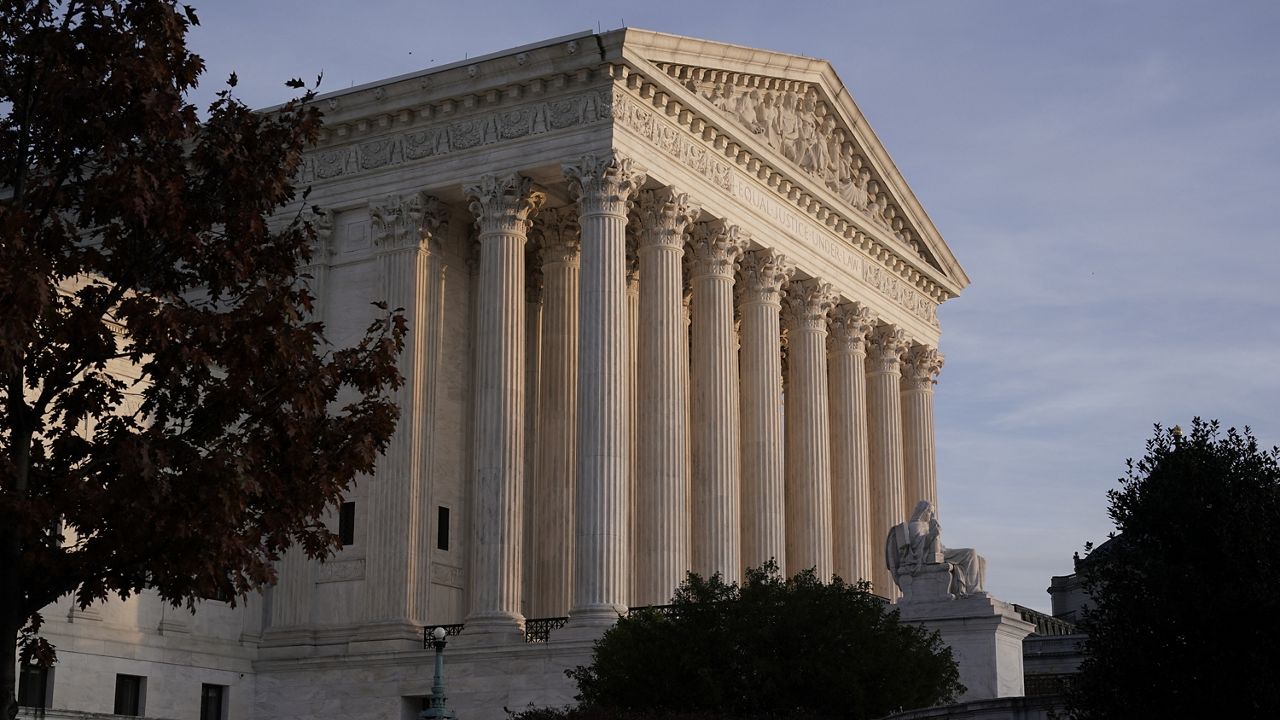All eyes will be on the Supreme Court Tuesday as the justices hear oral arguments for the case California v. Texas, the first challenge to the Affordable Care Act to be heard since the confirmation of Justice Amy Coney Barrett solidified a conservative majority on the court.
While legal experts say the court is unlikely to invalidate the entire ACA, many worry the challenge makes way for all or part of the law to be struck down, leaving millions of Americans uninsured.
The case centers on the individual mandate, the penalty for not purchasing minimum coverage established under the ACA. Since Congress set the penalty to $0 in 2017, the plaintiffs – which include the Trump administration, a group of Republican attorneys general and governors as well as two individuals in Texas – argue the mandate is unconstitutional.
In 2018, a federal judge in Texas invalidated the entire ACA based on that argument, which is why the case landed at the Supreme Court.
Legal experts say the Supreme Court is most likely to uphold past rulings on the ACA and rule narrowly, which means the law itself would still stand.
“I think the status quo should be upheld,” said Katie Keith, an adjunct professor of law at Georgetown University. “But it remains a distinct possibility that the law could very well be struck down.”
If the ACA is struck down, it would leave 21 million more Americans uninsured in 2022, according to a recent analysis by the Urban Institute, a 70 percent increase.
“All of [the data] is concerning to me,” said Linda Blumberg, the lead author of that analysis. “It's not overstating it to say that it would lead to chaos within the U.S. healthcare system.”
Most people who would lose insurance are those who gained it under the law’s Medicaid expansion. At least 15 million would lose coverage under Medicaid and the Children’s Health Insurance Program, according to the Urban Institute. And another nine million whose income allows them to purchase insurance with government subsidies would lose that assistance.
If millions of Americans become uninsured, Blumberg pointed out, the impact would go far beyond those people themselves. The change could have a ripple effect across the health care industry as a whole.
“It is also going to have tremendous implications for health care providers, where their revenue would be going down. And at the same time, the demand for free care – for people who need care but can't afford it – would explode,” Blumberg said. “Should this happen, there just wouldn't be enough dollars from providers and [governments] to compensate for this huge influx of the uninsured.”
Also at risk are the ACA’s protections for people with pre-existing conditions, which prevents insurers from denying those people coverage or charging them more. Most Americans, including Republicans, say the court should keep those protections in place, according to a Kaiser Family Foundation poll. Still, 76 percent of Republicans say the Affordable Care Act itself should be struck down.
After Tuesday’s arguments, the court could rule one of several ways. The justices could deem the individual mandate unconstitutional but allow it to be severed – separated and struck down – without invalidating the rest of ACA, or they could determine the mandate is not severable and therefore strike down part or all of the law.
“I think the folks I’ll be listening the most closely to will be Chief Justice Roberts, Justice Kavanaugh and Justice Barrett,” Keith said. “You need two conservative justices to vote to uphold the ACA.”
Chief Justice John Roberts voted to uphold the law and the individual mandate in 2012 in National Federation of Independent Business v. Sebelius, and Justice Brett Kavanaugh has most-closely aligned himself with Roberts’ decisions.
It’s too soon to tell which way Justice Barrett may vote, but she has been critical of Justice Roberts’ 2012 ruling. Democrats extensively questioned Barrett about the Affordable Care Act in her confirmation hearings last month. In those hearings, she focused on “severability,” the idea that the individual mandate could be separated from the other functioning parts of the ACA.
In a brief to the court, a group of economic experts wrote in support of upholding the law, saying it “remains fully effective and operational even in the absence of the individual mandate.”
If the ACA is struck down, it would most impact states that saw the most gains from the law’s Medicaid expansion. In Pennsylvania, for example, 170 percent more young adults would be uninsured. In Michigan, nearly 200 percent more would be uninsured.
Of states that didn’t expand Medicaid eligibility, Florida will experience one of the biggest increases in the number of uninsured – 59 percent – because the state has high enrollment in the ACA Marketplace.
The court is expected to issue a ruling in the case before its term ends in June 2021.



